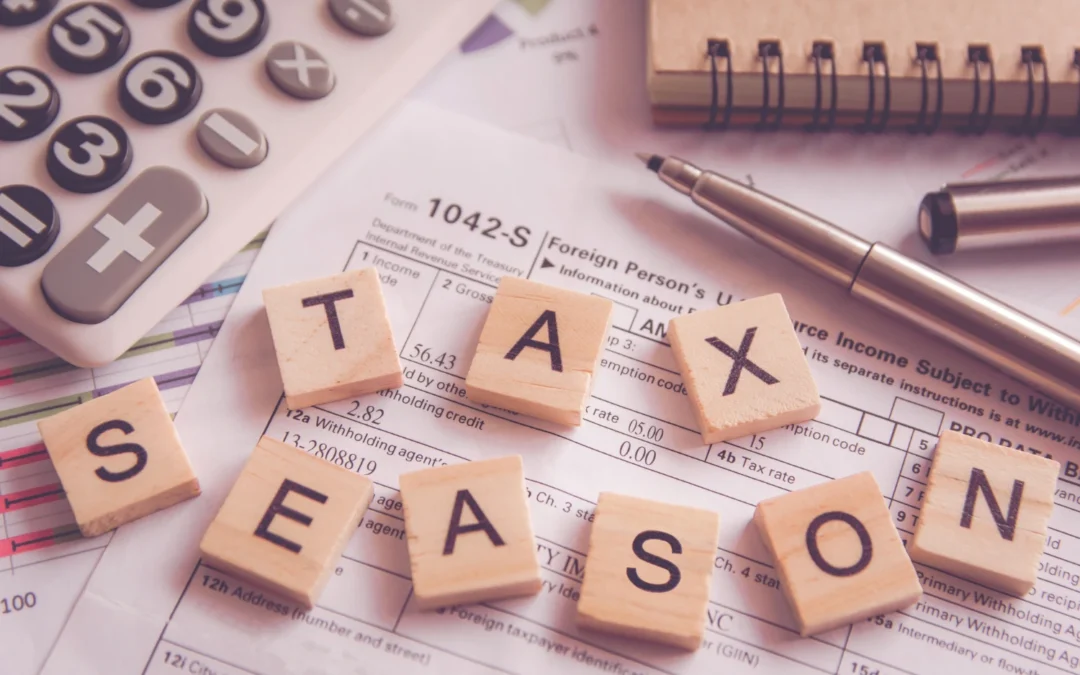Tax season stress is one of the leading causes of anxiety, affecting sleep, mood, and overall well-being. However, with the right coping strategies, you can navigate tax season with less stress and more control over your mental health. At California Recovery Center Behavioral Health, we believe in a holistic approach to mental wellness, offering practical tools to help individuals manage financial-related anxiety effectively.
How Tax Season Stress Affects Mental Health
Tax season can be an overwhelming time, bringing financial stress, uncertainty, and heightened anxiety. Whether you’re worried about filing deadlines, potential audits, or making ends meet, the pressure of taxes can take a toll on your mental health.
Money worries can trigger a response, leading to stress symptoms such as:
- Increased anxiety and racing thoughts
- Trouble sleeping or insomnia
- Irritability and mood swings
- Physical symptoms like headaches and tension
- Difficulty concentrating or making decisions
- Overwhelming feelings of fear and uncertainty
When left unaddressed, tax season stress can contribute to long-term mental health challenges like chronic anxiety, depression, and even burnout. Recognizing these symptoms is the first step toward managing stress in a healthy and proactive way.
Practical Strategies for Coping with Tax Season Stress
Plan Ahead & Get Organized
Procrastination can increase anxiety levels, making the tax process more stressful. To stay in control:
- Gather all necessary documents early (W-2s, 1099s, receipts, deductions, etc.).
- Use a tax checklist to ensure you’re not missing anything.
- Consider using tax software or hiring a professional to simplify the process.
Break It Down into Manageable Steps
Instead of tackling everything at once, break the process into small, manageable tasks:
- Designate specific days for gathering documents, filling out forms, and reviewing your return.
- Set reminders and deadlines to avoid last-minute stress.
- Reward yourself after completing each step to stay motivated.
Practice Stress-Reducing Techniques
Engaging in stress-management activities can help regulate emotions and prevent tax season stress from taking over:
- Deep Breathing Exercises – Try the 4-7-8 technique (inhale for 4 seconds, hold for 7, exhale for 8).
- Mindfulness & Meditation – Take 5–10 minutes daily to focus on the present moment.
- Physical Activity – Exercise, even a short walk, can boost endorphins and relieve tension.
- Journaling – Writing down your worries can help you process emotions and create clarity.
Seek Financial Guidance
If financial worries are causing major distress, seeking professional guidance can provide relief:
- Speak with a financial advisor or tax professional to clarify concerns.
- Research tax credits and deductions to maximize savings.
- Explore IRS payment plans if paying taxes all at once isn’t feasible.
Set Realistic Financial Goals
Creating a budget and long-term financial plan can reduce stress and increase financial security:
- Establish an emergency fund for future expenses.
- Set up automated savings to build financial stability.
- Learn more about financial literacy to gain confidence in money management.
Limit Negative Self-Talk & Catastrophic Thinking
It’s easy to fall into worst-case-scenario thinking when dealing with taxes, but reframing your thoughts can help:
- ❌ “I’ll never be able to afford this.
- ” ✔ “I am taking small steps to improve my financial situation.”
- ❌ “If I make a mistake, I’ll be in serious trouble.
- ” ✔ “I can always correct errors and seek professional help if needed.”
Lean on a Support System
Talking to someone about tax season stress can ease the burden:
- Share concerns with trusted friends or family.
- Join support groups or online communities for financial wellness.
- Consider mental therapy or counseling to develop coping strategies for money-related anxiety.
Prioritize Self-Care & Mental Health
Taking care of your mental well-being during tax season is just as important as filing correctly:
- Get enough sleep to improve focus and emotional regulation.
- Eat nutritious foods that support brain function and energy levels.
- Engage in relaxing activities, such as reading, listening to music, or practicing yoga.
- Set boundaries by limiting exposure to financial stressors, such as avoiding excessive news consumption or social media comparisons.
Need support managing tax season stress and anxiety?
Reach out to CRC today to learn more about our mental health programs and services!
How CRC Supports Mental Health During High-Stress Periods
At California Recovery Center, we understand how tax season stress can impact mental health. Our behavioral health programs provide:
- Therapy & Counseling – Learn effective coping mechanisms for stress and anxiety.
- Mindfulness & Stress Reduction Techniques – Develop skills to manage overwhelming emotions.
- Holistic Wellness Approaches – Integrate mental, emotional, and physical well-being into daily life.
- Telehealth Services – Access professional support from the comfort of your home.
Tax season doesn’t have to be overwhelming. By implementing practical strategies, seeking support, and prioritizing mental health, you can navigate tax season stress more effectively. If you’re struggling with anxiety, CRC is here to help you develop long-term coping skills and create a balanced, stress-free life.


